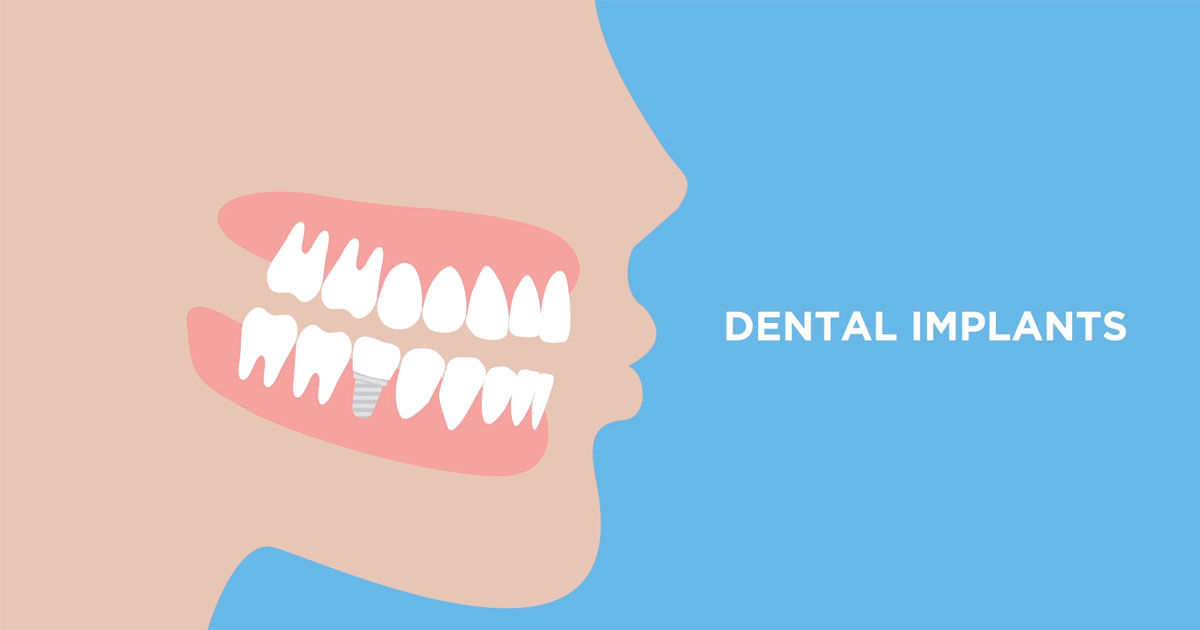
The total cost for dental implants will vary from person to person and should discussed with the oral and maxillofacial surgeon (OMS) who will be performing the procedure. Patients requiring a single implant in response to a facial injury or tooth loss should expect a different cost for their dental implant than someone receiving full-mouth dental implants. To understand the cost and value of dental implants, it is necessary to know what dental implants are and what differentiates them from alternative treatments.
What Are Dental Implants?
- Dental implants are a long-term solution to replace missing teeth. Implants are embedded in the jawbone just like regular teeth, have a 95 percent success rate and are backed by nearly 50 years of clinical research.
- There are three parts to an implant: a titanium implant that fuses with the jawbone, the abutment that fits over the implant and rises above the gum line and a crown fitted onto the abutment for a natural appearance.
- Implants are anchored to the jaw, meaning they will not shift when eating or speaking in the way dentures or bridges can. Dental implants also do no harm to neighboring teeth and can last a lifetime.
- Fixed bridges use neighboring teeth as anchors, often requiring reshaping of otherwise healthy teeth and may need to be replaced as often as every seven years.
- Conventional dentures are not anchored in the jawbone and can lead to bone loss. They also can cause embarrassing clicking sounds when eating or speaking.
How Much Do Dental Implants Cost?
There are many factors that may affect the cost of your dental implants. An accurate estimate can only be given after a comprehensive and individualized consultation with your OMS. Some of these factors are:
- Geographic location – Each individual OMS practice has its own overhead and supply costs.
- Surgical fees – Depending on what is needed for the dental implant placement, costs will vary for tooth removal, the type and use of anesthesia/sedation and the need for bone grafting, X-rays and materials.
- Crown placement and costs – The cost of the crown varies tooth to tooth. You also may be given a temporary crown during the healing period between the placement of the implant, abutment and permanent crown.
- Multiple teeth – If replacing multiple teeth, the cost of dental implants will be higher, as the length of the surgery and materials needed will likely increase.
- Insurance – Only some insurance plans cover dental implants, and even those plans have annual limits. To best budget for dental implants, patients should work with their oral and maxillofacial surgeon and consult their insurance provider.
Put simply, if you are considering the cost of dental implants, it is best to consult an OMS. While the cost factors may seem daunting, it is important to note that as a true long-term answer for missing teeth, dental implants offer incredible value as a potentially lifelong solution. These teeth will never get cavities, can be brushed and flossed like real teeth and, when cared for properly, can last for many years. Fixed bridges and dentures may cost less upfront, but they require significant upkeep and recurring costs. Some need to be replaced every seven to 15 years.
Article Courtesy of AAOMS, https://myoms.org/
All procedures performed at Pottstown Oral Surgery can be done under general or local anesthesia. Click here to learn more about us.